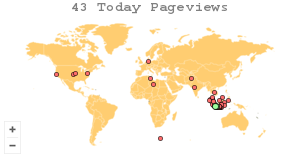CONCEPT OF SUPERVISION IN EDUCATIONAL INSTITUTIONS IN THE PERSPECTIVE OF THE QURAN AND AL-HADIST
DOI:
https://doi.org/10.47498/bashair.v3i1.1563Keywords:
supervision, al-Quran, al-HadistAbstract
This study aims to examine the meaning of the concept of supervision in educational institutions according to the perspective of the Koran and al-Hadith. This research method is a qualitative research with a literature study approach. The data used in this study are in the form of document data, both from the Koran, al-Hadith, textbooks, scientific journals, and other relevant document sources. In terms of this literature study approach, the researcher looked for literature or literature data in the form of the concept of supervision in educational institutions according to the perspective of the Koran and al hadith. The results of the study show that Supervision is a point of view in an effort to control the progress of a plan in an organ to avoid a failure, whether fatal or not. In relation to this factor, the Qur'an provides a clear and unequivocal picture regarding things that are detrimental so that they do not happen. In line with the Koran, the hadiths of Rasulullah SAW also provide examples of behavior in the implementation of supervision in Islamic Education Institutions. The results of this study are expected to be used as a reference for educational practitioners, so that it has implications for the quality of education and overall educational goals.
References
Departemen Agama RI. (2015). Al-Quran Terjemahan. Bandung: CV Darus Sunnah.
Kamenag RI. (2015). Asbabun Nuzul (Kronologi dan Sebab Turunnya Wahyu al-Quran). Jakarta: Lajnah Pentashihan Mushaf al-Quran.
Nazir, M. (2003). Metode Penelitian. Jakarta: Ghalia Indonesia.
Sabandi, A. (2013). Supervisi Pendidikan Untuk Pengembangan. Profesionalitas Guru Berkelanjutan. Pedagogi: Jurnal Ilmu Pendidikan, 13(2), 1-19. doi:10.24036/pedagogi.v13i2.4275
Sarwono, J. (2006). Metode Penelitian Kuantitatif dan Kualitatif. Yogyakarta: Graha Ilmu.
Shihab, M. Q. (2002). Tafsir Al Misbah (Pesan, Kesan, dan Keserasian Al-Qur'an) (Vol. JIlid 5). Jakarta: Lentera hati.
Sugiyono. (2013). Statistika Untuk Penelitian. Bandung: Alfabeta.
Syuhbah, A. (1969). Rihab al-Sunnah al-Kutub al-Shihab al-Sittah. Kairo: Majma’ al-Buhuts al-Islamiyah.
Wasehudin. (2018). Perspektif Al-Qur’an dan Undang-Undang Tentang GURU PROFESIONAL. TARBAWY: Indonesian Journal of Islamic Education, 5(1), 111–122.
Wicahyaningtyas, M. (2022). Controlling dalam Perspektif al-Quran dan al-Hadist. Al-Idaroh: Jurnal Studi Manajemen Pendidikan Islam, 6(1), 30-47. doi:10.54437/alidaroh.v6i1.373
Zed, M. (2014). Metode Penelitian Kepustakaan (3rd ed.). Jakarta: Yayasan Obor Indonesia.
Downloads
Published
Issue
Section
License
Authors who publish articles in Basha'ir: Jurnal Studi Al-Qur'an & Tafsir agree to the following conditions:
- The author retains copyright and grants the Basha'ir Journal the right from the first publication with the work simultaneously licensed under a Creative Commons Attribution-ShareAlike 4.0 International (CC BY-SA 4.0) license that allows others to make changes, adjust and build on the work with recognition of the author's work and initial publication in the Journal.
- Authors are allowed to copy and redistribute published versions of works in journals (for example, posting them to institutional repositories or publishing them in a book), with recognition of their initial publication in Basha'ir: Jurnal Studi Al-Qur'an & Tafsir.
- Authors are allowed and encouraged to post their work online (for example, in institutional repositories or on their websites) before and during the submission process, as it can lead to productive exchanges, and increase citations of published works






